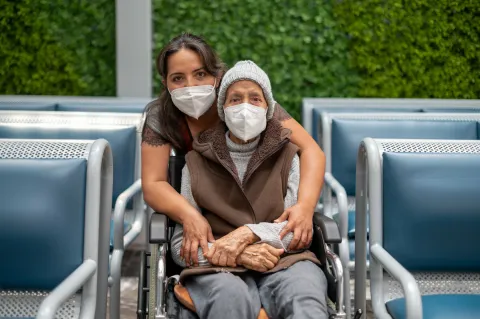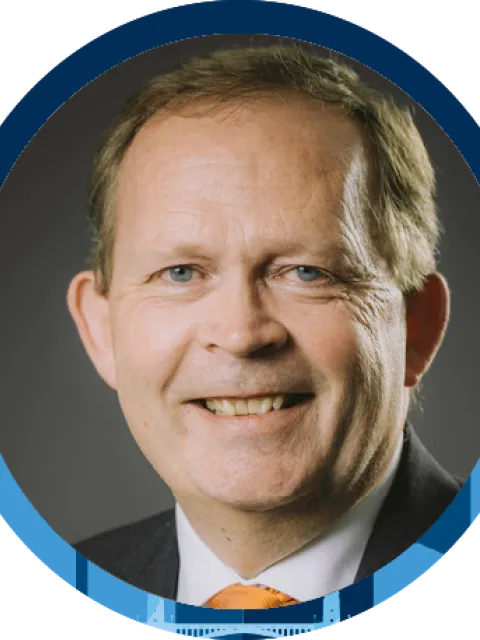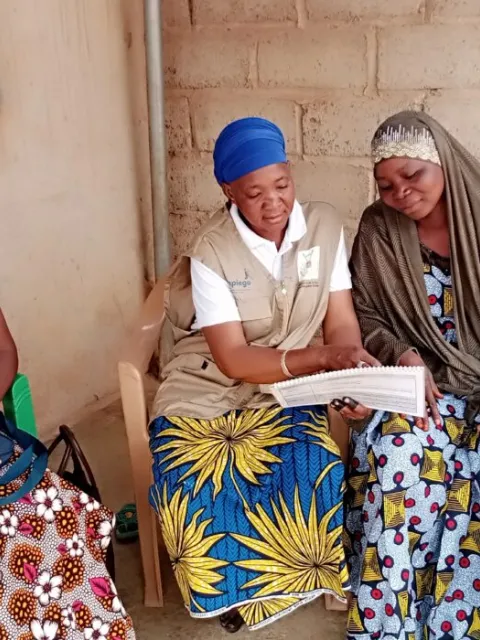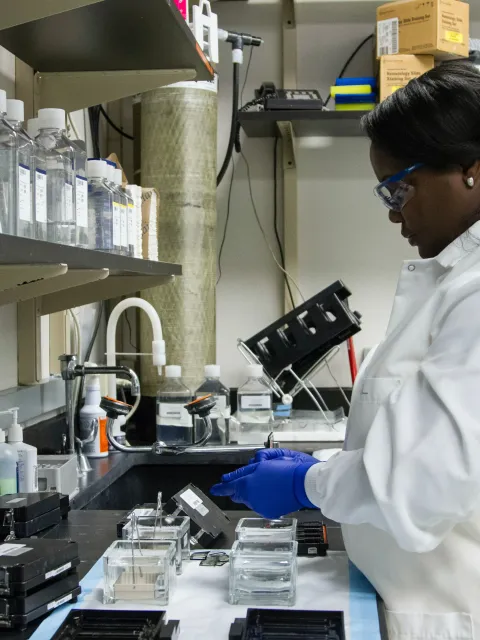Together we can close the care gap: human rights, UHC and cancer care

Marking Human Rights Day on 10 December and Universal Health Coverage Day on 12 December, Dr Cary Adams, CEO of UICC, explains how improving cancer control and providing access to life-saving services for all populations are steps towards Universal Health Coverage and supports the right to health for all.
COVID-19 has brought the issues of equity in healthcare and the right to health to the forefront of global conversations.
In the cancer community, however, we have long known that many people around the world are not accessing the prevention services, treatment and care they need and to which they are entitled as a fundamental human right. UICC is working actively to close this care gap and reduce the burden of cancer worldwide.
To ensure that fewer cancers go undiagnosed in children in low- and middle-income countries and so that more children globally survive cancer, we have joined the Global Initiative for Childhood Cancer and are working with WHO on planning and advocacy. We also support our members working in this space to raise awareness on childhood cancer interventions and share advocacy material and messages for policymakers.
To contribute to the elimination of cervical cancer globally, we have partnered with UNITAID, Expertise France and Jhpiego through the SUCCESS project to scale-up interventions in four target countries to help them achieve cervical cancer elimination goals.
To reduce the number of deaths caused by breast cancer, we have built a dedicated programme with our partners to strengthen the organisational capacities of UICC member organisations working on breast cancer, support national action and build bridges between cancer leaders, healthcare providers, foundations, governments, multilateral agencies and the private sector.
To highlight globally the issue of equity and fairer access to health care, we are launching a three-year campaign for World Cancer Day starting on 4 February 2022, entitled “Close the care gap.” This campaign is about understanding and recognising the inequities in cancer care – and then mobilising and acting to break down the barriers that prevent so many from receiving the cancer care they need.
The political will is there, certainly at the multilateral level. The UN has held three high-level meetings on non-communicable diseases (NCDs). A global action plan for NCDs was developed by WHO in 2013. The World Health Assembly adopted a resolution on cancer in 2017 entitled “Cancer prevention and control in the context of an integrated approach” emphasising the importance of national cancer control planning, an aspect of cancer control on which UICC is working closely with governments. And WHO has launched three global initiatives for cervical, breast and childhood cancers.
Cancer and other NCDs receive very little mention, however, in the United Nations framework for human rights – despite the fact that 10 million lives were lost to cancer in 2020 and NCDs represent seven of the world’s top 10 causes of death and disability worldwide.
This has to change – and we can do so, starting at the national level where addressing cancer is an obligation of the State. Indeed, providing effective access to quality cancer treatment and care for all populations is a pillar of the right to health and an ethical imperative.
The first step towards ensuring equity in cancer care is recognising this and acting on it by improving access to care for marginalised communities in national cancer control plans. These must take a community-based approach, which seeks to understand and address the barriers to accessing care faced by underserved populations, thereby supporting the commitment to uphold the right to health for everyone.
Investing in effective cancer care is certainly a cost – but this investment comes with a high return, as readily demonstrated by studies on scaling up interventions for childhood cancer and on financing cervical cancer elimination as well as on improving screening, treatment and quality of care globally.
Furthermore, 30-50% of all cancers are preventable, which means addressing the risk factors for cancer is highly effective and relatively inexpensive. In this regard, WHO has issued recommended interventions to assist countries in making decisions and implementing policies adapted to their resources. Addressing the underlying causes of cancer is a benefit to all of society.
Underlying all these actions to ensure that everyone can access quality cancer care, regardless of where they live or their socioeconomic situation, is the need for Universal Health Coverage (UHC). And integrating national cancer control into UHC planning is imperative.
As the ongoing pandemic continues to focus the world’s attention on health and governments seek to build more resilient health systems, there is an opportunity to reduce cancer cases, improve the chances of surviving cancer globally and fulfil our collective responsibilities to provide the right to health for all by addressing the inequities exposed by COVID-19.
Together, we can close the care gap.
Last update
Monday 05 December 2022Share this page


